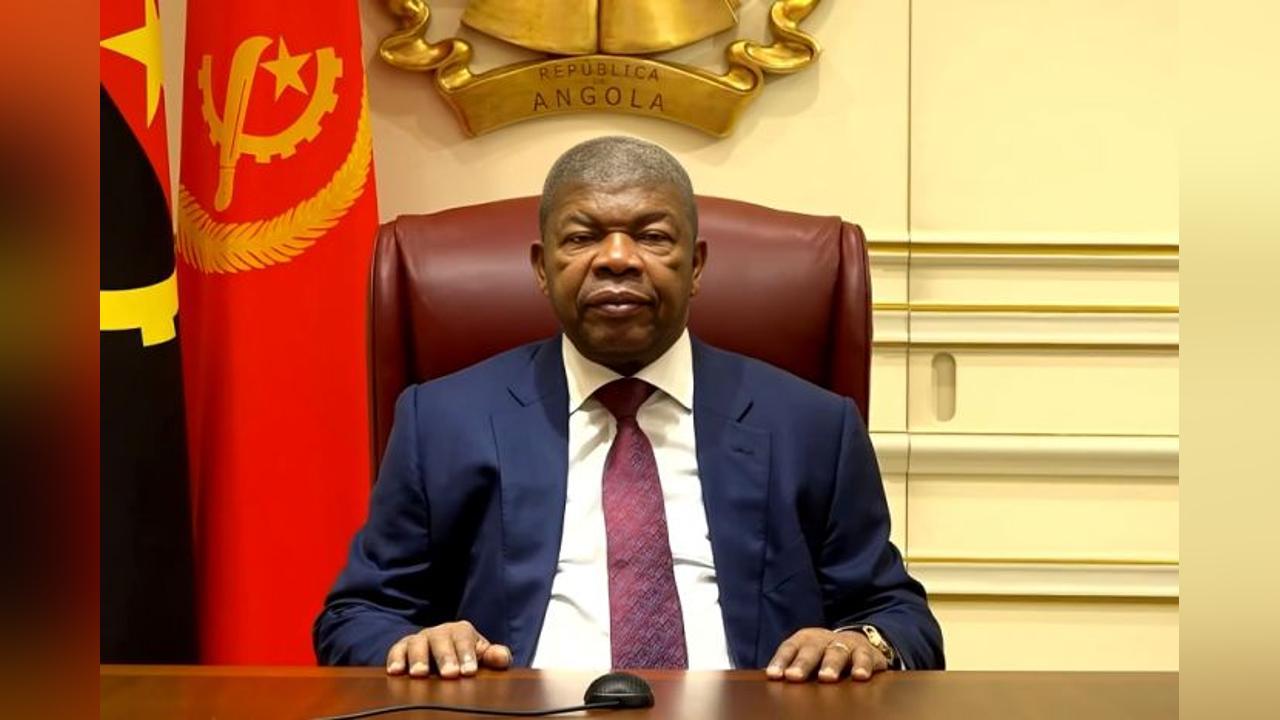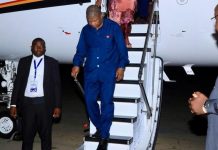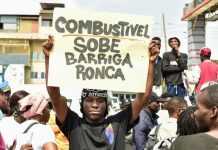Africa-Press – Angola. The President of the Republic has once again harshly attacked social media in his response to the riots that shook the country last week, particularly in Luanda, where dozens of deaths and injuries were recorded, as well as acts of vandalism and looting of public and private property.
It was not a heated reaction, that is, a hasty one, made in the heat of the moment, but a premeditated action, since he only spoke out days after the “dust had settled”.
According to João Lourenço, “the acts carried out by irresponsible citizens, manipulated by national and foreign anti-patriotic organizations through social media, brought mourning, the destruction of public and private property, the reduction of the supply of essential goods and services to the population and the unemployment of the Angolans who ran these commercial establishments.”
Probably due to a lack of “irrefutable evidence,” the President did not name the “anti-patriotic national and foreign organizations” that allegedly manipulated the “irresponsible citizens.” He did, however, hint that he was referring to the largest opposition party and certain civil society organizations highly critical of his poor governance.
If these were our old days of the “dictatorship of the proletariat” and monolithic power, João Lourenço would not hesitate to call them “agents in the pay of internal reaction and international imperialism, paid in US dollars.”
Symptomatically, the President of the Republic made no reference to the poor performance of the public press, which, as is known, concealed the facts and “helped” sow chaos through misinformation.
Despite having prior knowledge that the taxi drivers’ strike was in the works, the state press chose to turn a deaf ear, as if nothing had happened.
In this execrable exercise of shallow journalism, she gave no voice or space to the organizations representing taxi drivers, opting to play dirty with a prepared pro-government institution that would later announce the cancellation of the “blue and white” strike.
In other words, the press, under government control, instead of “informing truthfully,” misinformed, concealed the facts, and ultimately did a disservice to journalism and the public interest.
Numa simpatia pelo regime, ela desrespeitou os contribuintes que pagam do seu bolso a manutenção desses órgãos, mas que foram capturados pelo partido/Estado e convertidos em verdadeiras caixas-de-ressonância do poder político.
O silêncio observado pela imprensa, tida como “bem comportado”, faz parte de uma ampla estratégia governamental que consiste em ocultar certas decisões politicamente incômodas ao poder, ou, quando esta é divulgada, perturba deliberadamente a verdade.
Com a emergência das novas tecnologias de informação, as chamadas TIC’s, hoje são cada vez mais diminutas as hipóteses de ocultar a verdade, silenciar ou adulterar os factos devido ao papel activo e bastante interventivo das redes sociais.
Por força da internet, os regimes ditatoriais já não conseguem esconder facilmente as suas más práticas, os abusos e violações dos direitos humanos, daí o medo da perda do controlo desse importante instrumento de comunicação de massas.
Com todos os defeitos que as redes sociais possam comportar, a sua procura tem sido cada vez maior, ao ponto de os jornalistas deixaram de ser as únicas “estrelas” cintilantes no panorama informativo, passando a dividir o palco com os internautas.
Hoje, a informação está à distância de um clique, ela popularizou-se e desceu aos musseques, e tornou-se viral.
Ninguém em sã consciência pode negar o mérito das redes sociais que têm estado a “forçar” os órgãos públicos a procurar a “verdade material”, a correr atrás do prejuízo, agindo mais como órgãos reactivos do que pró-activos.
Achei, em tempos, ridículo um debate promovido pela RNA sobre as “fakes news” e a necessidade do seu combate por via da punição judicial.
O debate, com os comentaristas escolhidos a dedo, mais me pareceu uma comédia de mau gosto em que o roto acusava, em termos ásperos, o rasgado.
Verdade seja dita, a RNA, à semelhança dos demais órgãos de imprensa, não constitui um espelho de virtudes em matéria da divulgação da verdade e da imparcialidade.
Daí que os órgãos públicos de comunicação social, cujos gestores têm sido nomeados pelo Presidente da República, não têm a autoridade moral para criticar ou apontar o dedo acusatório às redes sociais e “fakes news”, quando eles próprios não promovem, em distintas ocasiões, a verdade, isenção, o contraditório e o debate plural inclusivo.
A censura não se restringe às vozes críticas de certas figuras da oposição, da sociedade civil ou dos sindicatos, sendo extensiva aos próprios membros do partido no poder, aos governantes e responsáveis das esferas intermédias da governação.
Embora tenha como lema: “Produzir mais para comunicar melhor”, o MPLA continua fechado em si mesmo, enclausurado numa redoma de vidro, sem dar espaço para que os seus membros e militantes possam exprimir livremente o seu pensamento ou tecer críticas ao desempenho e à postura dos seus dirigentes nos mais diversos escalões.
Lacking an internal space for dialogue, debate, or the exchange of ideas, several members of this political group have found an outlet on social media to express their innermost feelings, but they do so under the cloak of anonymity, fearing reprisals.
Hence, almost no one in the MPLA speaks or dares to open up to the press, especially the private press, without “Superior Orders”.
With all the risks they pose in terms of misinformation and sensationalism, social media has become, fortunately or unfortunately, an alternative source of information for consumers.
Unfortunately, not everything published on these channels is true, so it’s necessary to compare the data to separate the wheat from the chaff. Social media shouldn’t be dismissed or ignored simply because it only spreads lies and slander; there are also truths hidden within these gaps.
In fact, social media only achieved the importance and impact it currently has due to the political power itself, which consistently censors the public press, to the point of discrediting it in the eyes of taxpayers.
Hence, disinformation and “fake news” cannot be combated solely with punitive laws, but above all with the opening of public media so that it can restore lost trust and relegate social media to the background.
angola24
For More News And Analysis About Angola Follow Africa-Press






